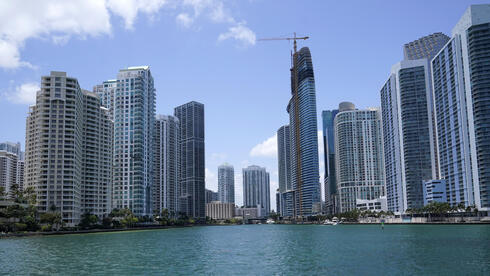In recent years, and especially since the outbreak of the COVID-19 pandemic, Florida has become one of the most sought-after destinations for Americans looking for a better quality of life. In 2021, over 800,000 residents relocated to Florida from various U.S. states, and in 2023, Florida welcomed 637,000 new residents – including thousands of Israelis.
9 View gallery
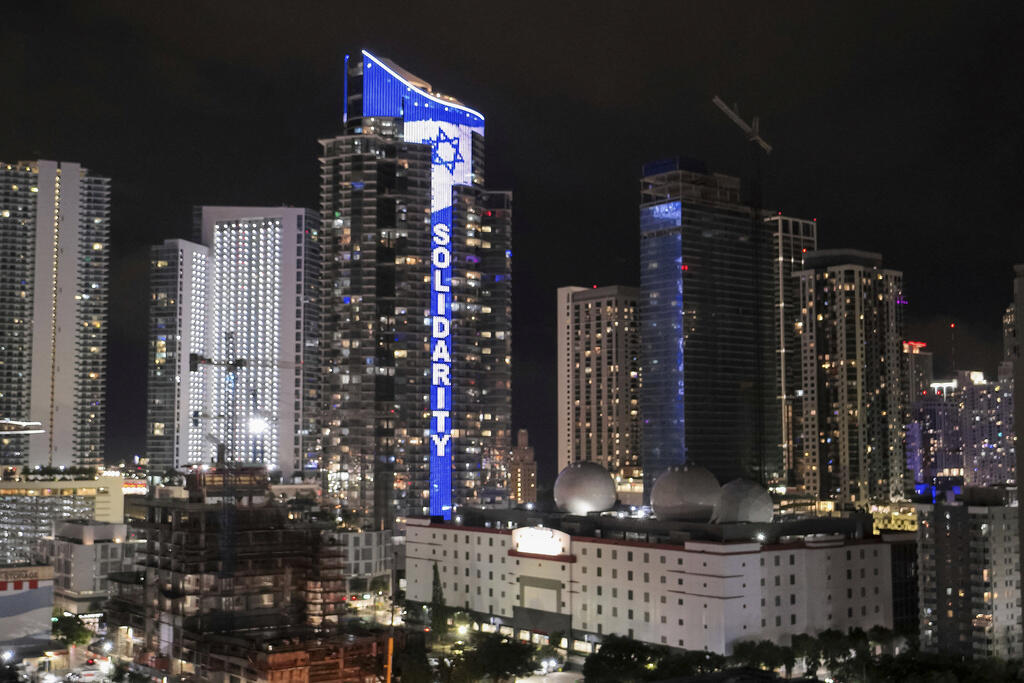

Downtown Miami
(photo: Eva Marie Uzcátegui, AP)
Florida is considered an especially attractive destination for good reason. The state does not levy an income tax, offers summer-like weather year-round, and has a growing job market – particularly in real estate, technology, finance, and tourism.
Still, for Israelis, it holds an additional appeal: Miami is home to the third-largest Israeli population in the U.S. after New York and Los Angeles.
In Miami and its surrounding areas, you’ll find neighborhoods that are almost entirely Israeli, such as Aventura, Hollywood, Sunny Isles Beach, Plantation, and Bal Harbour – the latter combining oceanfront living, luxury leisure, and some of the world’s most upscale shopping centers. The area is considered one of the most desirable destinations for Florida’s wealthy.
Aventura is the only city in the U.S. without mosques or churches, yet you won’t have trouble finding a synagogue within walking distance. It’s easy to see why so many Israelis feel at home there.
Israelis immigrating to the U.S. primarily weigh three main destinations: Los Angeles, New York, or Miami. The first two options are too expensive, Los Angeles is relatively far (an extra five-hour flight to Israel), and New York is too cold in winter. In many ways, Miami is perfect. This is why the community in Miami has been growing rapidly in recent years, attracting a significant percentage of Israelis who left the country after October 7 – as well as older Israelis who have lived in the U.S. for years.
9 View gallery
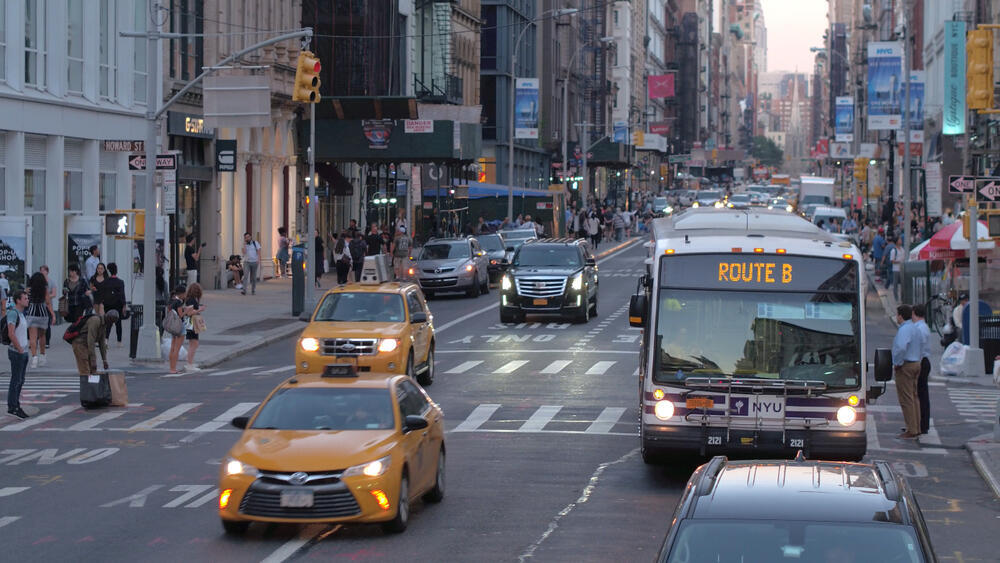

Still number one for Israelis. But for how long? New York
(photo: Editorial credit: Flystock / Shutterstock.com)
A glance at the Facebook page for Israelis in Miami and South Florida reveals dozens of posts from newcomers seeking jobs, apartments, immigration lawyers, and sometimes even furniture.
“How do I get a Green Card? Can someone recommend?”; “Next month I’m relocating to Florida. Is it a problem to buy a car? Do I need credit? Is it second-hand?”; “Hi, I’m 25, arrived in Florida a week ago, looking for a job immediately in the area”.
Every post is met with countless recommendations, job offers in sales, and furniture giveaways — a community striving to help every newcomer settle in comfortably.
“The situation back in Israel became very stressful; we felt we needed a change”, says Alon, who moved to Miami about six months ago with his partner Yuval, both 24.
“We have a few friends who already made this move before us – some went to New York, others to Florida – and they all encouraged us to come. At first, we debated whether to move to Los Angeles or Miami, but after researching in depth, we realized Miami is much more convenient in terms of cost of living”.
Alon explains that since the war, the city has been overflowing with young Israelis starting new chapters in their lives.
“Miami today is full of 20 and 30 year-olds who arrived from Israel after October 7. Everyone is on the same wavelength, with similar stories, and together we feel like a family”.
Reflecting on the first months in Miami, Alon says enthusiastically: “We posted an ad on Facebook saying we were looking for work, and within hours we received tons of responses. Although most offers didn’t suit us, it was really heartwarming to see how kind and willing to help people are here”.
According to him, even moving into their new home was made easier thanks to the local community. “People helped us with furniture, household items, a TV, a mattress, dressers — simply amazing. At first, we didn’t have a suitable vehicle to move the larger items, so an Israeli with a pickup truck who wanted to give us a set of sofas volunteered to bring everything to our home. Things like that just don’t happen anywhere else”.
Today, Alon and Yuval work in cosmetics sales. “We can’t say if we’ll eventually return to Israel”, he admits, “but for now wewre enjoying the peace, calm, and warmth of the community here. People invite us to Shabbat meals, holidays, and always make sure we feel part of the family.
“In Israel, we hardly ever celebrated Shabbat”, Alon says. “But here, maybe because we don’t have family around, we do it more -we go to friends who invite us, and in a way it even connected us a bit more to religion. Something about the atmosphere here makes you feel a sense of belonging”.
Limor and Shuki Mor moved to Miami three years ago from Los Angeles, after living in the City of Angels for about 20 years. “We left because of all the COVID restrictions and the liberal policies in Los Angeles. We weren’t ready for all the coercion with vaccines and masks”, says Limor.
9 View gallery
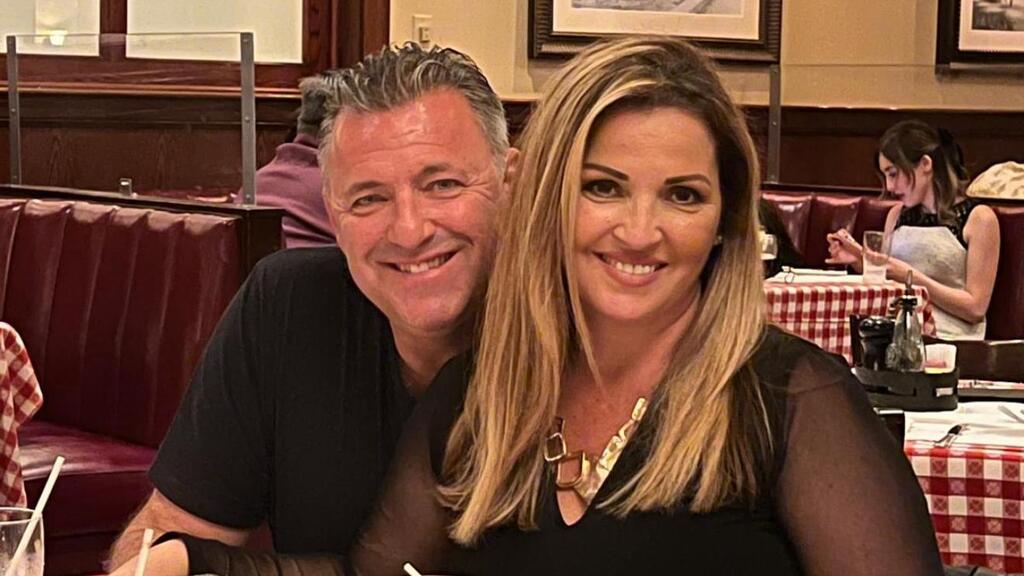

“I didn’t agree to let my children get vaccinated, and every day they had to undergo intrusive and stressful testing. The governor of California also ruined the state. We started seeing lots of gangs threatening people on the streets, crime increased, homelessness everywhere, and taxes are extremely high compared to other parts of the U.S”.
Limor, a medium and numerologist, recounts that after being invited with her husband to a wedding in Miami, he fell so in love with the city that he told her he wasn’t going back to Los Angeles. “He said to me: ‘I’m staying, bring the things from the house and come'”.
He didn’t have to persuade her much: Limor packed up their home, moved the household to Miami, and left L.A. with the children.
9 View gallery
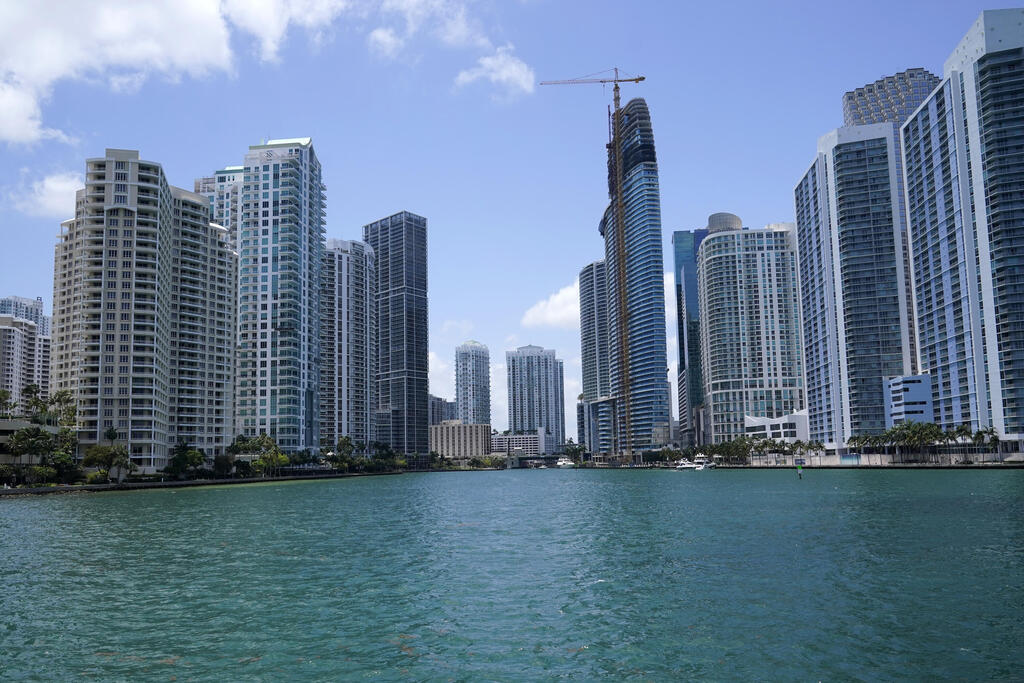

A new start. Miami skyline
(photo: AP Photo/Lynne Sladky)
The large wave of immigration to Florida has caused a surge in real estate prices. Nevertheless, Florida is still much more affordable than Manhattan, Los Angeles or San Francisco, especially when considering the lack of income tax and the relatively low cost of living.
“We were stunned when we saw how different everything is here”, says Limor. “The community is very united and strong. Every holiday here feels like being in Israel. I came across some incredible WhatsApp groups. My children had no opportunities to meet young Jewish peers in Los Angeles, but here they’re constantly invited to events and busy with social activities with Jews and Israelis, which was very important to me”.
Israelis in Miami are well-informed and highly involved in Israeli politics, keeping up with ynet in real time and watching news broadcasts from Israel via Israeli cable channels. Weekend discussions about Israeli politics are as lively as back home.
Yair Netanyahu is perhaps the most famous Israeli currently living in Miami. For the past two years, he has resided in a luxury condominium in an affluent Miami suburb. Nevertheless, for understandable reasons, he is not particularly involved in the local Israeli community.
9 View gallery
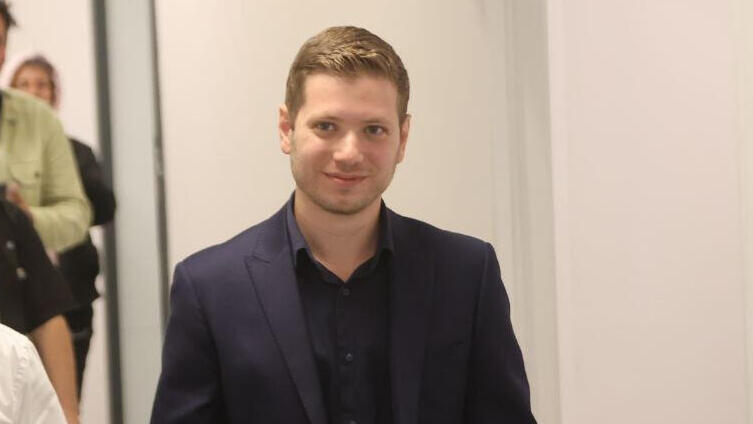

Yair Netanyahu
(photo: Moti Kimhi)
Moshe Yamin arrived in Miami in May 1982 and is counted among the city’s veteran Israelis.
When he moved there, he recalls, the Israeli community was very small; today, he says, it numbers around 120,000 people. Some in the community estimate the figure to be much higher — largely depending on how one counts and who qualifies as Israeli.
In his early years in the city, Yamin ran businesses in footwear, restaurants and jewelry stores, later becoming a business and investment professional. For many years, he also covered community affairs in Yediot America, wearing several hats as a reporter, publicist, and distributor of the newspaper.
Among other things, he made sure to frequently report on the Israeli parliament established by Amnon Gershoni, who moved to the city 42 years ago. Gershoni was a history teacher in an Israeli high school before relocating to the U.S. Initially, he settled in Washington, D.C., where he built shopping centers, and later moved with his wife and children to Florida. Now he lives in Sunny Isles Beach:
“This is the Riviera of Miami. We called the first parliament the ‘Riviera Parliament’. From there on, we established additional parliaments. Our aim was to consolidate Israeli cultural and community activities in the U.S.”.
The city hosts two active scouting groups, a Jewish community center (JCC), and numerous Jewish and Israeli organizations. Yamin led the “Gdolim MehaChaim” chapter in Miami for years before passing the reins to his eldest daughter.
9 View gallery
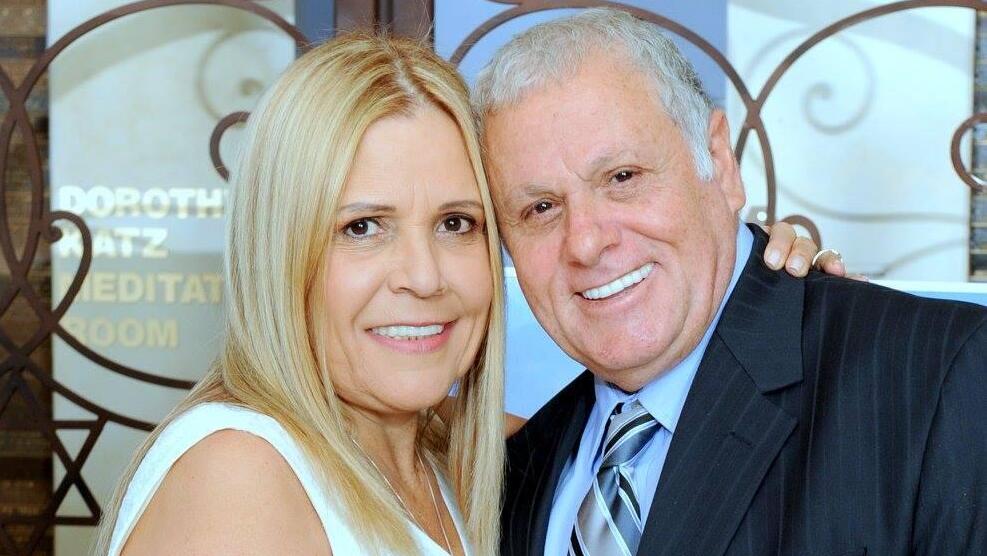

Moshe Yamin and his wife Tova
Regarding children, it’s not uncommon to see the second generation of Israelis in Miami choosing to make Aliyah or return to Israel. Both Yamin and Gershoni have daughters who were born in Israel, moved to Miami at a young age, but decided as adults to leave the U.S. and return to Israel.
“My daughter told me: ‘When I was little, you decided for me; now I decide for myself and want to live in Israel'”, Yamin recounts. “She’s been living in Israel for 20 years, and we visit every year for a month or a month and a half. What’s happening here is the reverse process: instead of us drawing the children back to Israel, they are pulling us”.
A key factor strengthening the Jewish and Israeli identity of Israeli children is education. The city has several Jewish schools, including ones teaching in Hebrew, making it easier for Israeli families to feel at home and maintain their culture and traditions.
“There are schools offering free education for students to preserve the younger generation, including Hebrew, Judaism and Zionism studies”, says Yamin, whose wife Tova manages the Hillel Day School in the city. “She is raising generations of Jews who become Zionists. Some of them now work in government”.
Their children have also established and managed Hillel branches, each within the academic institution where they studied. Irit, Gershoni’s daughter and the second of his four children, chose to return to Israel with her husband and children.
“My children always had a close and warm connection to Israel; we made sure to take them for visits. My grandchildren were born in the U.S. but grew up in Israel. One granddaughter is a lawyer in Israel, and my great-grandchildren were already born there”.
Natalia, Limor Mor’s 21-year-old daughter, is preparing to return to Israel. Limor has two children from her first marriage and another with Shuki Mor. Her daughter, who grew up entirely in the U.S. and holds a degree in psychology, will enlist in the upcoming IDF March draft.
“She will travel to Israel in January with a ‘Garin Tzabar’ group and undergo preparation for her enlistment. She will enter as a future officer with a degree”, says her proud mother. “Even my son, who has been in the U.S. since he was four months old, wants to enlist”.
“If you’re an Israeli who loves the country, Israeli food and Israeli atmosphere – but not the stress, tension, politics and depressing news – then Miami is ideal for you”, says Natali Levi, who has lived in Miami for 18 years. “Even the weather is reminiscent of Israel, especially the central region – hot and humid”.
Miami generally enjoys tropical, warm weather year-round, with humid, rainy summers and pleasant, mild winters. However, residents and visitors should remember that the area is occasionally exposed to extreme conditions. During the hurricane season, typically from June to November, there is the possibility of tropical storms and hurricanes that can bring strong winds, heavy rains, and flooding. Consequently, Miami authorities and residents make sure to be prepared for emergencies and follow safety guidelines as needed.
9 View gallery
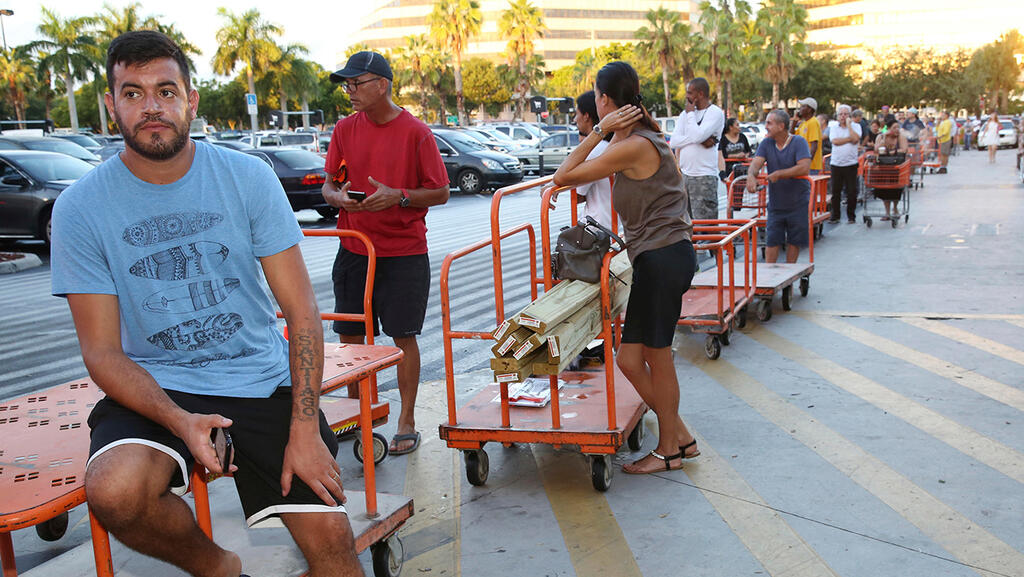

Floridians preparing for a Hurricane
(photo: AP)
This is one reason why popular professions among Israelis include HVAC technicians, window and roof installers, real estate, and construction.
“The air conditioning runs 24/7 here, only for cooling”, says Limor. “There’s no need for heating. So there’s always demand for HVAC technicians because the AC can break down, and life here without air conditioning is impossible”.
Since storms can break windows, window installers are also in demand, as well as roofers, because roofs can be blown away or damaged in storms.
Many Israelis who have immigrated to the city have become millionaires, actively contributing to and participating in the community. Among them are: Naomi and Michael Dazer, owners of a real estate investment company and apartment towers, including the Trump Hotel in Sunny Isles; Yitzhak Toldano, owner of a real estate company; Helena and Yaakov Shaham, owners of a chain of nursing homes; and Chaim Yehezkel, owner of a real estate company.
9 View gallery
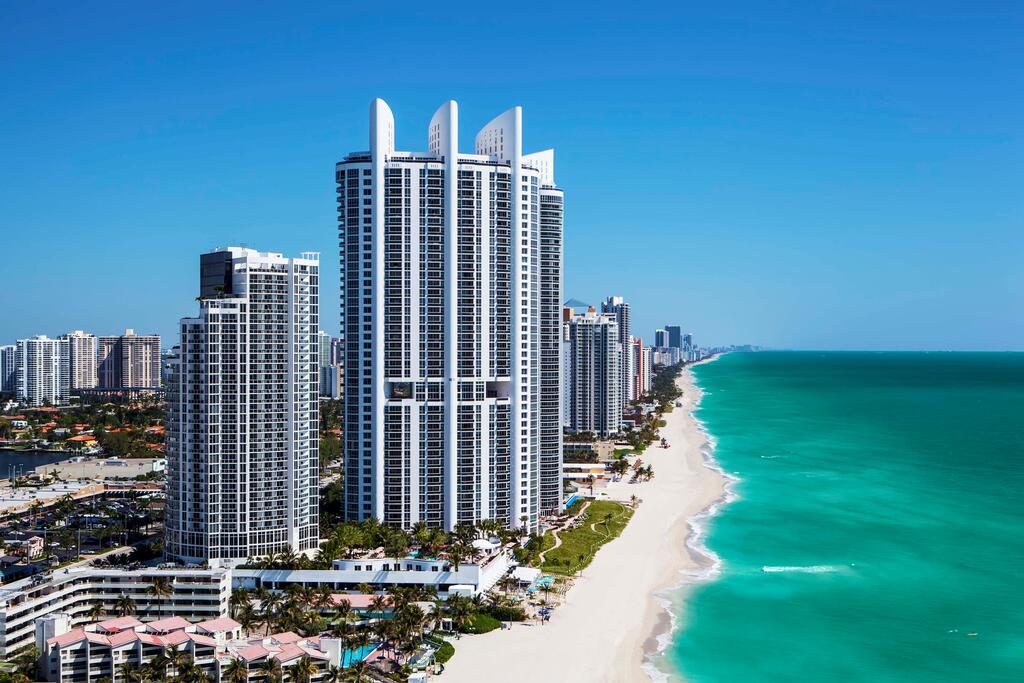

Trump hotel in Sunny Isles, owned by Naomi and Michael Dazer
Levi, a religious woman observing Shabbat and kosher laws, has moved between three homes during her time in the city – and says she never had trouble finding a synagogue within walking distance wherever she lived.
“There are streets where on Shabbat, you could think we are in Israel because everyone is dressed in Shabbat clothes and walking to or from the synagogue”.
Keeping kosher in Miami is relatively easy. In addition to Israeli supermarkets selling kosher products and items from Israel, kosher products are also available in non-Jewish supermarkets. For example, at Costco — the U.S.’s large wholesale supermarket chain — you can find kosher meat and cheeses, some of which are produced in Israel.
Happen to want authentic Israeli food? No problem. Options include restaurants such as Motek, Aviv, Etzach Itzik, Abala, HaSalon (owned by Eyal Shani), Holy Grill Hummus, Vegas & Grill, and more.
Miri Kitai, regional director of the IAC (Israeli-American Council), moved to Miami a year and a half ago from San Diego.
“I lived in California for 20 years and never saw a community as proud and engaged as the one in Miami”, she says. “You don’t see Israeli flags raised everywhere like this anywhere else. When I arrived, I photographed flags everywhere. The community here isn’t afraid to be Zionist and show it”.
Kitai notes that she has witnessed a large wave of immigration to Miami from Israel, as well as from other parts of the U.S. According to her, “We don’t have exact verified numbers, but estimates suggest around 200,000 Israelis live in the Miami area”.
The community’s connection to Israel is visible not only in the flags. Recently, a gathering was held in Aventura to celebrate the release of hostages, attended by 1,000 people.
9 View gallery
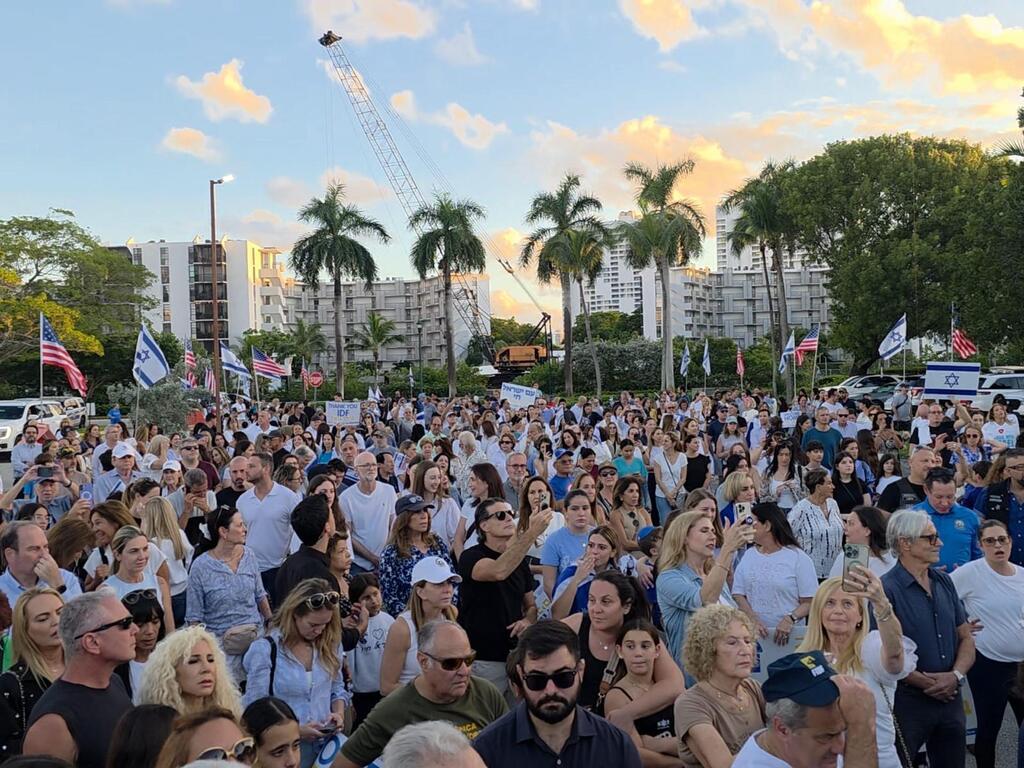

Celebrating the hostages’ release, Aventura
(photo: Courtesy of IAC)
“We started organizing the event on Monday, but Tuesday and Wednesday were holidays, so we only announced it after the holiday. Within 24 hours, 1,000 people showed up. I stood on the stage and couldn’t believe what I was seeing”, Kitai recounts.
With a large Israeli and Jewish community, it’s no surprise that several Jewish mayors serve in the Miami metropolitan area. Daniela Levine Cava has been mayor of Miami-Dade County since November 2020; Steven Meiner was elected mayor of Miami Beach in November 2023, and Josh Levy is the mayor of Hollywood, Florida.
“Josh Levy is a strong supporter of Israel. He organized a pro-Israel rally with participation from the Israeli motorcycle group in the city”, says Yamin. “The Jewish Federation realized we are a driving force and established an active Israeli division, led by Israelis who organize trips to Israel, including visits to the Gaza border area”.
What about relationships? Residents report that assimilation is not widespread. The children of Yamin, Gershoni, and Levi are all married to Jews.
“It’s not difficult to find Jewish partners in Miami because there are so many Jews here”, says Levi. “I may not be the best example since we’re a religious family, but I also know secular Israelis whose children are married to Jews”.
The rate of inter-faith marriage in Miami’s Jewish community is significantly lower than the national average in the U.S. According to a study conducted by Brandeis University in cooperation with the University of Chicago in 2024, only 24% of married Jewish adults in Miami married non-Jewish partners. In contrast, the national average was 42% in 2020.

